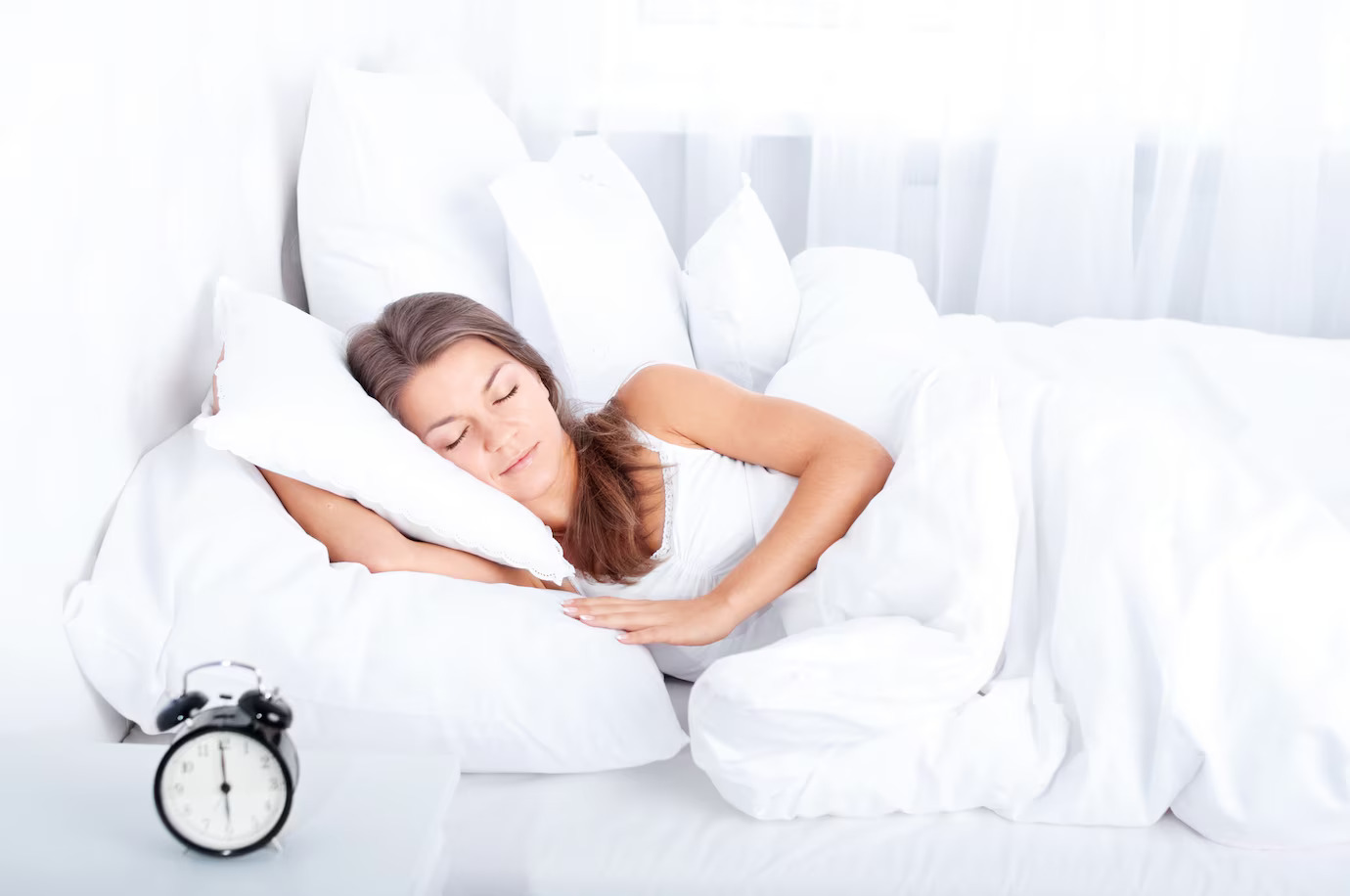Why Is Sleep So Important?
Sleep is not just about rest; it’s a complex biological process that affects nearly every system in your body. During sleep, your brain and body undergo crucial activities:
- Memory Consolidation
Sleep helps your brain process and consolidate information from the day, strengthening memory and learning capacity. - Physical Repair
Your body repairs muscles, tissues, and cells, and balances hormones like cortisol (stress hormone) and ghrelin (hunger hormone). - Emotional Regulation
Adequate sleep allows for better emotional stability, reducing irritability, anxiety, and the risk of mental health disorders. - Immune Function
Sleep supports the production of cytokines and other immune-boosting cells, enhancing your body’s ability to fight infections.
Given its impact, inadequate sleep can contribute to a range of health issues, including obesity, cardiovascular disease, impaired cognitive function, and a weakened immune system.
Understanding the Sleep Cycle
Sleep is divided into four stages that cycle repeatedly throughout the night:
- NREM Stage 1 (Light Sleep)
This initial stage is the transition from wakefulness to sleep. It’s characterized by slow eye movement and relaxation, and you can be easily awakened. - NREM Stage 2
In this stage, heart rate and body temperature decrease. It’s a deeper form of light sleep where your brain activity shows a distinct pattern known as sleep spindles. - NREM Stage 3 (Deep Sleep)
Deep sleep is critical for physical restoration and recovery. It’s marked by slow brain waves, muscle relaxation, and a drop in blood pressure. This stage is also where the body produces the most growth hormone. - REM Sleep (Rapid Eye Movement)
REM sleep is when most dreaming occurs. It’s essential for cognitive functions like memory, problem-solving, and emotional regulation. During this stage, your brain activity is similar to when you’re awake, but your muscles are temporarily paralyzed to prevent you from acting out your dreams.
Each complete sleep cycle lasts about 90 minutes, and it’s ideal to get 4-6 cycles per night for optimal health.
Factors Affecting Sleep Quality
Many factors can interfere with sleep quality, from lifestyle habits to environmental conditions. Identifying and addressing these can help pave the way for a more restful night.
- Circadian Rhythm Disruptions
Your body’s internal clock (circadian rhythm) dictates when you feel sleepy or awake. Factors like irregular sleep schedules, jet lag, or exposure to blue light from screens can disrupt this rhythm, making it harder to fall and stay asleep. - Diet and Caffeine Consumption
Heavy meals or caffeine intake close to bedtime can interfere with sleep. While caffeine blocks adenosine (a sleep-promoting neurotransmitter), large meals can cause discomfort and indigestion, making sleep elusive. - Stress and Mental Health
Elevated stress levels and mental health conditions like anxiety or depression can keep your mind active, making it difficult to relax into sleep. - Sleep Environment
A noisy, brightly lit, or uncomfortable sleep environment can prevent your body from entering deeper stages of sleep. - Physical Activity Levels
Regular physical activity promotes better sleep, but exercising too close to bedtime can have the opposite effect by elevating your heart rate and body temperature.
Science-Backed Strategies for Better Sleep
Improving your sleep doesn’t have to be complicated. With some simple adjustments to your lifestyle and environment, you can create a routine that promotes high-quality rest. Here’s how:
1. Establish a Consistent Sleep Schedule
Go to bed and wake up at the same time every day, even on weekends. This consistency reinforces your body’s internal clock, making it easier to fall asleep and wake up naturally.
2. Create a Relaxing Bedtime Routine
Develop a pre-sleep ritual that signals your body it’s time to wind down. This could include activities like:
- Reading a book
- Taking a warm bath or shower
- Practicing gentle yoga or stretching
- Listening to calming music or white noise
- Meditation or deep breathing exercises
Avoid stimulating activities like checking emails or watching action-packed TV shows.
3. Optimize Your Sleep Environment
Make your bedroom conducive to sleep by adjusting lighting, noise, and temperature:
- Temperature: Keep the room cool (between 60-67°F or 15-19°C) for optimal sleep.
- Lighting: Use blackout curtains or a sleep mask to block out light. Exposure to light, especially blue light, interferes with melatonin production, a hormone that promotes sleep.
- Noise: Use earplugs or white noise machines to drown out disruptive sounds.
Your bed and pillows should also be comfortable and supportive, tailored to your preferred sleep position.
4. Limit Caffeine and Alcohol
Caffeine and alcohol can significantly disrupt sleep quality. Avoid consuming caffeine at least 6-8 hours before bedtime. While alcohol may make you feel sleepy initially, it interferes with REM sleep, leading to fragmented and unrefreshing rest.
5. Watch Your Diet
Avoid large, heavy meals and spicy foods close to bedtime, as these can cause digestive discomfort and disrupt sleep. Instead, opt for light snacks if you’re hungry before bed. Foods rich in magnesium (like almonds or bananas) or tryptophan (such as turkey or dairy) can promote relaxation.
6. Manage Stress Levels
Elevated cortisol levels (stress hormones) make it difficult to fall asleep. Incorporate stress-reduction techniques into your daily routine:
- Practice mindfulness or meditation.
- Engage in regular physical activity (preferably earlier in the day).
- Journaling can help process thoughts and emotions, promoting a calmer mind before bed.
7. Avoid Naps or Keep Them Short
While napping can be beneficial, long naps (over 30 minutes) or napping late in the day can interfere with your ability to sleep at night. If you need a nap, aim for a short, 20-minute power nap in the early afternoon.
8. Limit Screen Time Before Bed
The blue light emitted from phones, tablets, and computers suppresses melatonin, making it harder to fall asleep. Aim to turn off screens at least one hour before bed or use blue light filters if necessary.
The Role of Sleep Supplements
If you’re still struggling to sleep despite making these changes, supplements may help. Some common sleep-promoting supplements include:
- Melatonin
Melatonin supplements can help regulate the sleep-wake cycle, especially for those with circadian rhythm disruptions or insomnia. - Magnesium
Magnesium promotes relaxation by regulating neurotransmitters and reducing cortisol levels. It’s best taken 30 minutes before bed. - Valerian Root
An herbal supplement that may help reduce anxiety and promote better sleep, though its effects are more mild compared to other options. - L-Theanine
An amino acid found in tea leaves, L-theanine can promote relaxation without causing drowsiness, making it an excellent addition to your nighttime routine.






